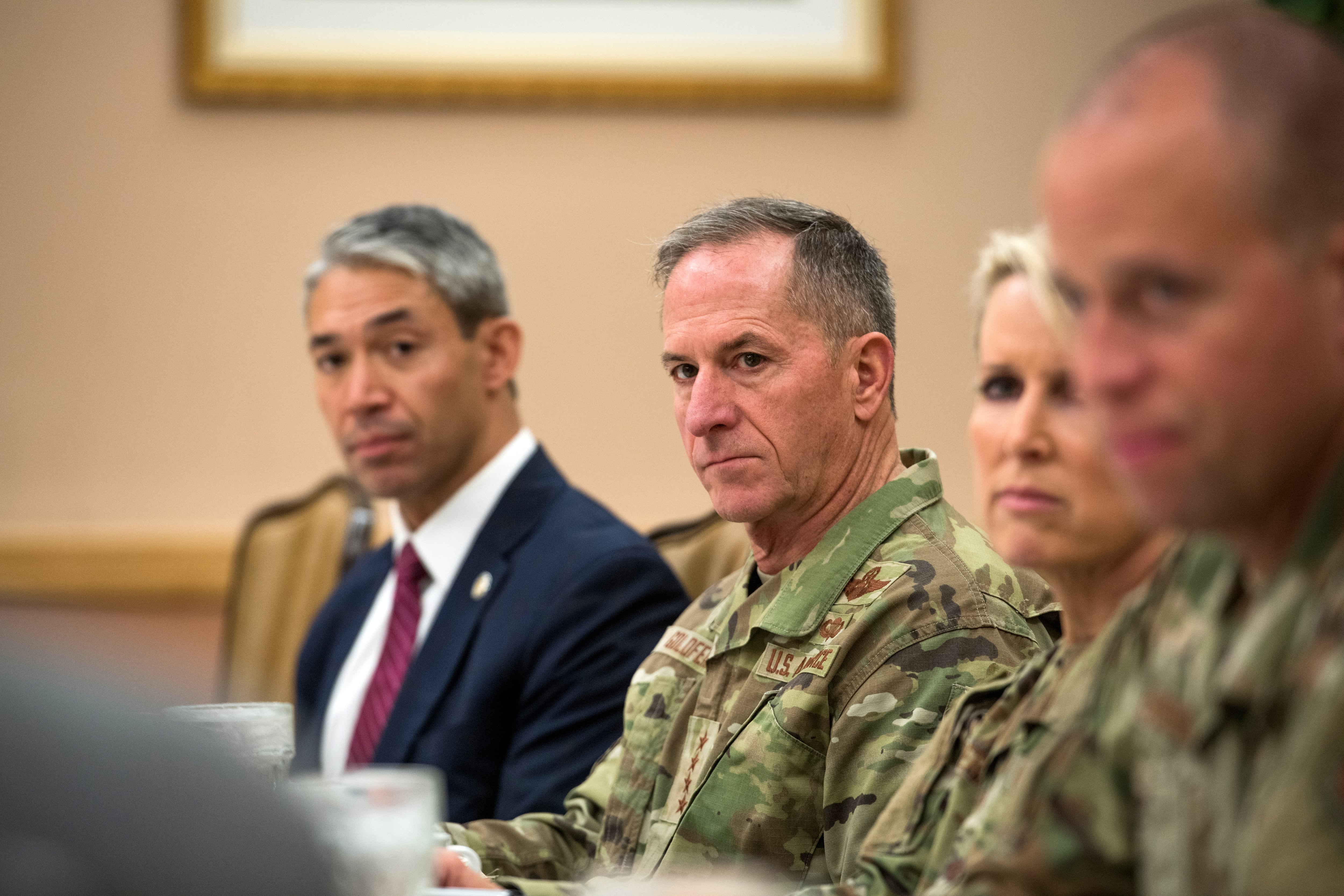WASHINGTON — The $2 trillion economic stimulus package passed by the Senate late Wednesday includes provisions limiting stock dividends for companies that accept governmental loans — but avoids the more restrictive language that was included in the House version of the legislation.
The Senate language, which is expected to be adopted by the House and signed into law by President Donald Trump, also contains $10.5 billion in funding for the Department of Defense to combat the fallout from the new coronavirus pandemic.
No dividends or other capital distributions of stock can occur until 12 months after the loan has been paid back to the federal government, a restriction sought by good-government groups that worry the money given to industry could be primarily used to bolster shareholder value.
In addition, until Sept. 30, any business that takes loan money from the government will have to maintain its employment levels at what they were on March 24 of this year “to the extent practicable.” If cuts are needed to survive, a company can reduce employment levels by no more than 10 percent until the end of September.
What was in the House version?
However, those restrictions are significantly lighter than what had been proposed in the House version. In addition to the restriction on stock buybacks and dividends, the House sought that all executive bonuses would be frozen, no “golden parachute” compensation be allowed for departing executives, and the corporation be blocked from doing “any Federal lobbying activities” for the duration of the loan.
The first two restrictions could have put a company at a disadvantage when trying to attract top talent versus competitors. But the ban on lobbying might have had a particularly big impact when it comes to the often brutal fights over defense dollars that play out on Capitol Hill.
RELATED

Byron Callan, an analyst with Capital Alpha Partners, acknowledged that any company under the lobbying ban may be at a disadvantage when competing for major defense dollars, something he called a “leveling effect” on the playing field. But Callan also noted that “companies are creative enough to find ways to get their messages across.”
As an example, he suggested companies could have their workforce bombard the local representatives with phone calls. That would still get messaging to those who need it, but in a more chaotic method that could make life somewhat miserable for congressional staff.
“There is a weird efficiency,” Callan noted, “to having lobbyists do some of this work.”
Nick Schwellenbach of the Project on Government Oversight called the attempted lobbying ban a “good idea” but like Callan predicted companies will likely find a way around any lobbying ban.
“As long as companies charge their lobbying to an account that isn’t funded by a bailout, their lobbying activities will be kosher under the law. And bailout funding can free up corporate assets to do this,” he said. “If Congress can figure out how to prevent this and to make the restriction enforceable, it will have more teeth. Providing corporate insiders whistleblower protection for disclosing this misuse of bailout money would greatly help with enforcement, too."
However, one senior defense industry lobbyist, speaking on condition of anonymity, called the attempted ban on lobbying “clearly unconstitutional,” adding: “It’s ironic that the very people that Congress reaches out to when they need expertise or information are the ones they want to throw overboard when it’s politically expedient”
In terms of potential bailouts, the most obvious contender in the defense sector is Boeing, whose commercial aviation arm has been beaten up in the last year, thanks first to the grounding of the 737 Max and then the collapse of global aviation.
Ironically, Boeing’s lobbying efforts may have paid off in the Senate’s version of the bill. The Washington Post reported Wednesday that heavy lobbying from the aerospace giant led to the inclusion of a $17 billion loan program for companies deemed “critical to maintaining national security." The Post reported that fund is specifically crafted for Boeing’s use.
Per totals collected by OpenSecrets.org, Boeing spent $13.81 million on lobbying in 2019 — a figure that is the aerospace giant’s lowest lobbying total since 2007. Lobbying peaked in 2015 at $21.92 million, per the OpenSecrets.org database.
Leo Shane III with Military Times contributed to this report.
Aaron Mehta was deputy editor and senior Pentagon correspondent for Defense News, covering policy, strategy and acquisition at the highest levels of the Defense Department and its international partners.




